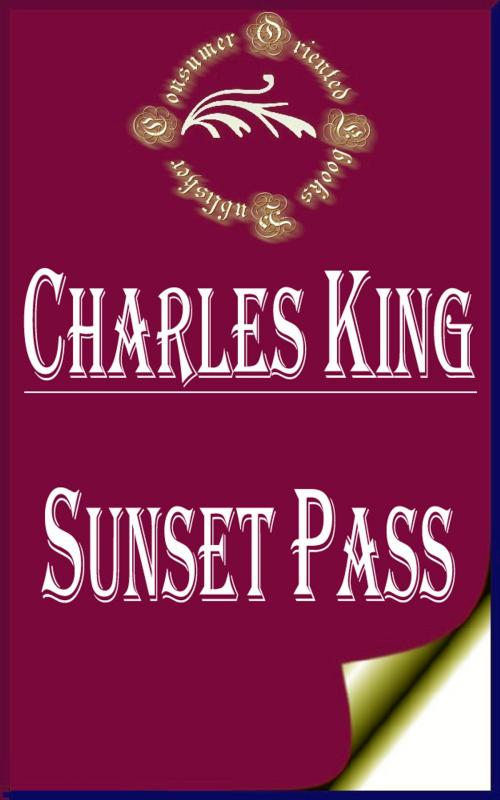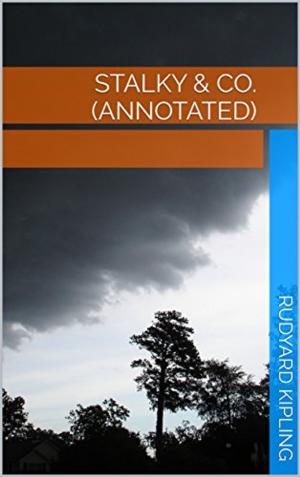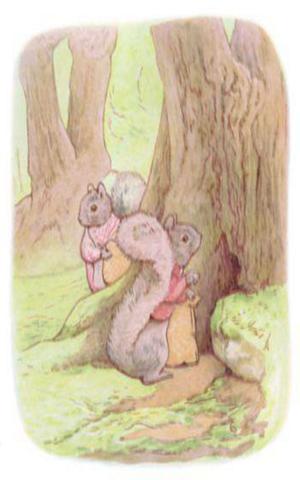Sunset Pass; or, Running the Gauntlet Through Apache Land (Illustrated)
Fiction & Literature, Westerns, Action Suspense, Classics| Author: | Charles King | ISBN: | 1230000481267 |
| Publisher: | Consumer Oriented Ebooks Publisher | Publication: | June 11, 2015 |
| Imprint: | Language: | English |
| Author: | Charles King |
| ISBN: | 1230000481267 |
| Publisher: | Consumer Oriented Ebooks Publisher |
| Publication: | June 11, 2015 |
| Imprint: | |
| Language: | English |
"Better take my advice, sir. The road ahead is thick with the Patchies."
"But you have come through all alone, my friend; why should I not go? I have been stationed among the Apaches for the last five years and have fought them all over Arizona. Surely I ought to know how to take care of myself."
"I don't doubt that, captain. It's the kids I'm thinking of. The renegades from the reservation are out in great numbers now and they are supposed to be all down in the Tonto Basin, but I've seen their moccasin tracks everywhere from the Colorado Chiquito across the 'Mogeyone,' and I'm hurrying in to Verde now to give warning and turn the troops this way."
"Well, why didn't they attack you, then, Al?"
The party thus addressed by the familiar diminutive of "Al" paused a moment before reply, an odd smile flitting about his bearded lips. A stronger, firmer type of scout and frontiersman than Al Sieber never sat in saddle in all Arizona in the seventies, and he was a noted character among the officers, soldiers, pioneers, and Apaches. The former respected and trusted him. The last named feared him as they did the Indian devil. He had been in fight after fight with them; had had his share of wounds, but—what the Apaches recoiled from in awe was the fact that he had never met them in the field without laying one at least of their number dead in his tracks. He was a slim-built, broad-shouldered, powerful fellow, with a keen, intelligent face, and eyes that were kindly to all his friends, but kindled at sight of a foe. A broad-brimmed, battered slouch hat was pulled well down over his brows; his flannel shirt and canvas trousers showed hard usage; his pistol belt hung loose and low upon his hips and on each side a revolver swung. His rifle—Arizona fashion—was balanced athwart the pommel of his saddle, and an old Navajo blanket was rolled at the cantle. He wore Tonto leggins and moccasins, and a good-sized pair of Mexican spurs jingled at his heels. He looked—and so did his horse—as though a long, hard ride was behind them, but that they were ready for anything yet.
"Better take my advice, sir. The road ahead is thick with the Patchies."
"But you have come through all alone, my friend; why should I not go? I have been stationed among the Apaches for the last five years and have fought them all over Arizona. Surely I ought to know how to take care of myself."
"I don't doubt that, captain. It's the kids I'm thinking of. The renegades from the reservation are out in great numbers now and they are supposed to be all down in the Tonto Basin, but I've seen their moccasin tracks everywhere from the Colorado Chiquito across the 'Mogeyone,' and I'm hurrying in to Verde now to give warning and turn the troops this way."
"Well, why didn't they attack you, then, Al?"
The party thus addressed by the familiar diminutive of "Al" paused a moment before reply, an odd smile flitting about his bearded lips. A stronger, firmer type of scout and frontiersman than Al Sieber never sat in saddle in all Arizona in the seventies, and he was a noted character among the officers, soldiers, pioneers, and Apaches. The former respected and trusted him. The last named feared him as they did the Indian devil. He had been in fight after fight with them; had had his share of wounds, but—what the Apaches recoiled from in awe was the fact that he had never met them in the field without laying one at least of their number dead in his tracks. He was a slim-built, broad-shouldered, powerful fellow, with a keen, intelligent face, and eyes that were kindly to all his friends, but kindled at sight of a foe. A broad-brimmed, battered slouch hat was pulled well down over his brows; his flannel shirt and canvas trousers showed hard usage; his pistol belt hung loose and low upon his hips and on each side a revolver swung. His rifle—Arizona fashion—was balanced athwart the pommel of his saddle, and an old Navajo blanket was rolled at the cantle. He wore Tonto leggins and moccasins, and a good-sized pair of Mexican spurs jingled at his heels. He looked—and so did his horse—as though a long, hard ride was behind them, but that they were ready for anything yet.















